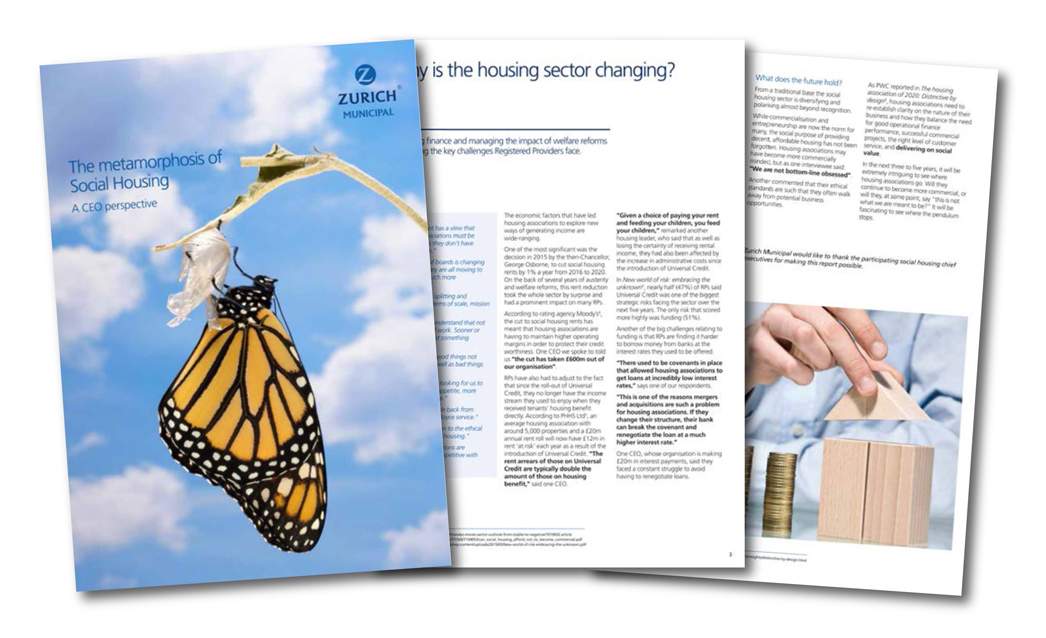
Tough times and dwindling revenue streams are forcing Britain’s housing providers to look for new ways of making money, a report by the leading public sector insurer Zurich Municipal has found.
The report — The metamorphosis of Social Housing: A CEO Perspective — is based on in-depth interviews with the CEOs of several housing associations.
According to the report, Registered Providers (RPs) are now accessing income in a wide variety of ways, from buying and selling land and other assets, to offering a range of ‘non-core’ services, such as social care or operating leisure centres. A previous report by Zurich Municipal found that 76% of RPs had introduced new services beyond their core role as a housing provider.
Some housing associations are now generating up to half their income from non-core activities, with one association bringing in the majority (53%) of its income in this way, driven largely by market sale and shared ownership sales.
The commercialisation of housing associations follows economic changes and welfare reforms, such as the recent cut to social housing rents. It is estimated that the cut to social housing rents alone has forced housing associations to maintain higher operating margins to protect their creditworthiness. One CEO stated that “the cut has taken £600m out of our organisation”.
RPs have also had to adjust to changes brought about by the roll-out of Universal Credit. According to PHHS Ltd, an average housing association with around 5,000 properties and a £20m annual rent roll will now have £12m in rent ‘at risk’ each year as a result of the introduction of Universal Credit. One CEO said that the rent arrears of those on Universal Credit are typically ‘double’ the amount of those on housing benefit.
Access to finance was also identified as a major issue for RPs, with many CEOs explaining that they are finding it more difficult to borrow money at the low interest rates they had been offered in the past. One CEO, whose organisation is making £20m in interest payments, said they faced a constant struggle to avoid having to renegotiate loans.
The report also explored some of the risks associated with the change in approach of RPs and found that the need to tighten belts has caused a re-evaluation of the way RPs manage their housing stock, both in terms of the way they are built and how refurbishments are carried out.
With the need to cut costs now a key priority, the report identified a consensus that old ways have to change in this area, and one CEO said that the sector must “scale back from offering a Rolls Royce service”.
The report also found that despite becoming more commercially minded and focussed on operational performance, RPs have not forgotten their core purpose of providing decent, affordable housing.
Crucially, the report also points to new risks. Many housing associations now provide services in highly regulated industries, whilst others could be caught out by lacking insurance cover for new services provided on their premises.
Commenting on report, Allison Whittington, Head of Housing at Zurich Municipal, said: “Housing associations have traditionally been very risk-averse. But difficult circumstances have led many CEOs to reassess the way they look at risk as they seek to use commercial opportunities to build resilience into their organisations.
“RPs have so far done an excellent job in not allowing commercialisation to divert them from their natural instincts to provide good quality and affordable housing to society.
“Going forward however, it’s vital that RPs continue to work with their partners to make sure they strike a sensible balance between the benefits of a commercial opportunity and the level of risk they are willing to take on as an organisation.”








